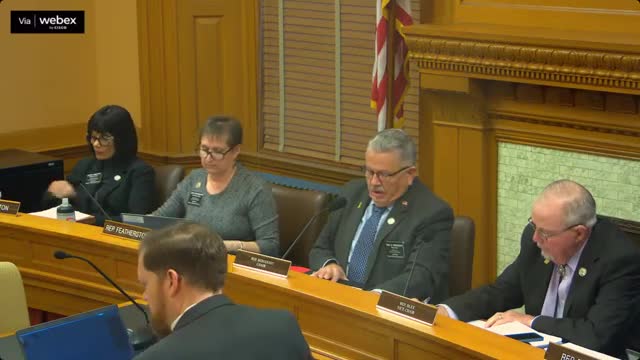Committee advances bill to create Kansas Municipal Employee Whistleblower Act
Get AI-powered insights, summaries, and transcripts
Subscribe
Summary
The Committee on Local Government voted to advance House Bill 2160, which would extend whistleblower protections to municipal employees, add statutory definitions for malfeasance and misappropriation, and permit employees to sue in district court.
At a meeting of the Committee on Local Government, members voted to advance House Bill 2160 to the full House after adopting an amendment that adds statutory definitions for malfeasance and misappropriation.
The bill, described by the committee revisor as “the bill to create the Kansas Municipal Employee Whistleblower Act, which is modeled after the current state employee whistleblower act 75-2973,” would extend to municipal employees the same legal protections currently available to state employees for reporting or disclosing unlawful or dangerous actions by their employer, the revisor said.
The measure would replicate the state act’s definition of disciplinary action and add two provisions not in the state law: a definition of malfeasance and misappropriation and a provision allowing municipal employees to bring a direct cause of action in district court for violations of the new act. “It will go into effect on July 1, if enacted,” the revisor said.
Committee debate focused on the scope of protected disclosures and the bill’s language. Representative Barth asked whether testimony about a local matter called Komakora related to the bill and noted it did not affect cost or timing. “This bill has nothing to do with the cost or how long it takes or what it looks like. Nothing about Komakora. Is that right?” Barth asked. The revisor responded that the bill’s only reference to the Open Records Act is to permit discipline when an employee discloses information that is exempt from disclosure under that act.
Members discussed the amendment offered by staff, described by the revisor as a “balloon amendment” that (1) inserts statutory definitions of malfeasance and misappropriation — defined in the amendment as, respectively, “unlawful conduct committed by any member of the governing body of a municipality or any officer or other employee thereof” and “the unauthorized or unlawful expenditure or transfer of monies that are held by the municipality” — and (2) strikes a separate clause that would have expressly protected an employee who disclosed a “substantial and specific danger to public health or safety to any person, agency, or organization,” on the grounds that that sort of disclosure is already covered elsewhere in the bill.
Representative Blackson moved to adopt the amendment and Representative Essex seconded. The committee adopted the amendment on a voice vote. Representative Collins then moved to pass the bill favorably to the House; Representative Barth seconded. The committee passed House Bill 2160 on a voice vote and advanced it to the House.
Members noted neutral or concerned testimony from groups including the League of Municipalities and county representatives; the revisor said if disputes over the definitions arise in later cases, “it would be largely a fact based analysis” for the courts to resolve. The revisor added that the definitions were “generally lifted from legal definitions for those terms and have been slightly modified to fit the context and the purpose of this bill.”
The committee did not record a roll-call tally in the transcript; votes were taken by voice. No amendments beyond the balloon amendment were adopted. The revisor and members indicated the action taken was the committee’s final business for that portion of the session.
The bill would create a new, parallel process for municipal employees to seek redress for retaliation: unlike state employees, who must first pursue remedies before the Civil Service Board, municipal employees under the proposed act could file directly in district court, according to the revisor’s summary. The bill also alerts employers that disclosures of information exempt under the Open Records Act could still be the basis for discipline if the disclosure violates confidentiality rules.
